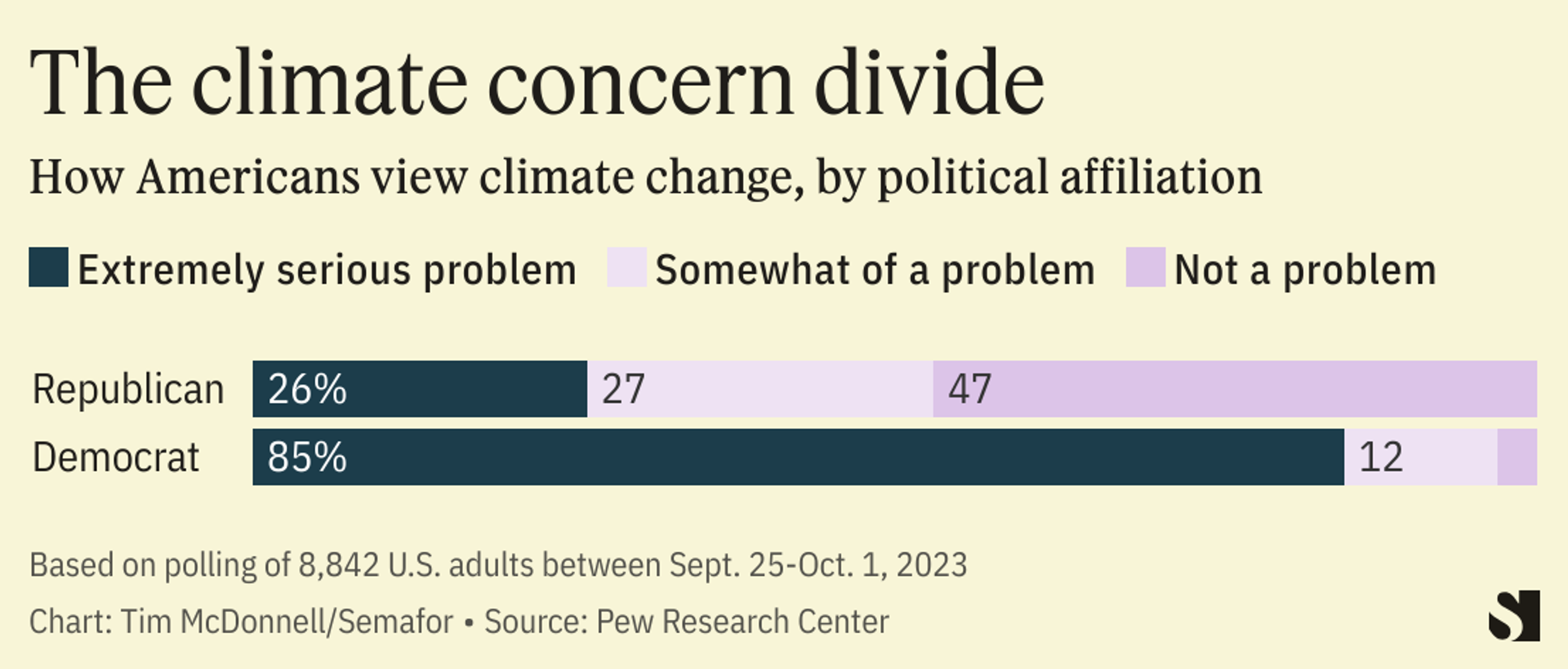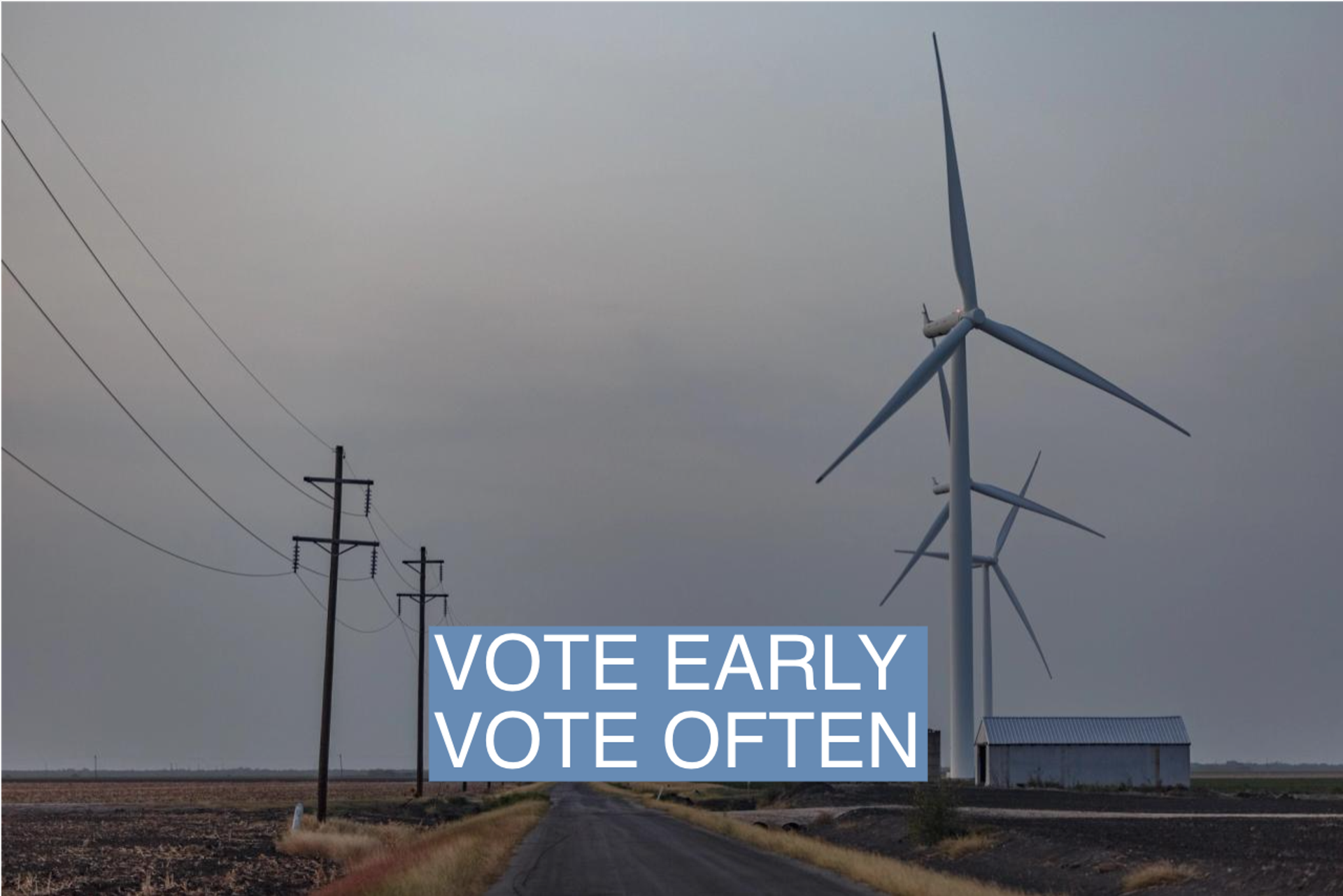The News
High-stakes climate and energy decisions are on the ballot in a number of U.S. state-level elections next week. Both Virginia and New Jersey are within a slim margin of flipping from Democratic to Republican control, putting major clean-energy and electric-vehicle initiatives at risk as many voters remain unaware of the economic benefits of Biden administration climate policy. Voters in Texas and Maine, meanwhile, will choose whether to place more control of their electric grids in the hands of fossil-fuel companies.
Tim’s view
Next Tuesday’s off-cycle elections are important for climate in their own right, with emissions and clean energy investments on the line. They’re also a referendum on whether a core Biden administration argument — that the energy transition is a surefire win for jobs and economic growth — is getting through to voters in some of the states that have, up to now, moved most quickly to embrace it. In that sense, they’re a bellwether for 2024: If Tuesday delivers a sweep to state-level Republican candidates (off-cycle elections often have low turnout, a factor that in the U.S. tends to favor Republicans), it would bode ill for Biden and Congressional Democrats next year.
Local governments are also critical gatekeepers for Inflation Reduction Act dollars, having the choice to apply, or not, for federal loans and grants to support investments in manufacturing facilities, job retraining, building efficiency upgrades, and other measures. So far, most post-IRA clean energy investment has flowed to Republican-majority states. But as the general election approaches, state Republicans may be more cautious about handing Biden any wins, and if next week’s elections consolidate Republican control of states with potential for growing clean energy sectors, the outflow of IRA money could slow.

On the other hand, whether they win this time or not, local Democratic candidates are key to informing voters about how they can benefit from the IRA, said Emma Fisher, deputy director of Climate Cabinet Action, an advocacy group that supports climate-focused candidates in local elections. Recent polling indicates that most voters aren’t aware of the law’s consumer-oriented tax benefits.
“Local candidates are last-mile communicators,” she said. “The work they’re doing talking about the energy transition is laying the groundwork for that message to take seed in 2024.”
The View From Virginia
Virginia’s state Senate is only two seats away from flipping to Republican control, which, if that party also maintains its majority in the state House, would place the full Virginia government in Republican hands. If that happens, Gov. Glenn Youngkin would have the votes to dismantle the state’s clean-energy policies, among the strongest in the region, as he has been pushing to do since taking office in 2021.
That includes repealing the 2020 law requiring the state’s electric utilities to buy 100% renewable power by midcentury, which could endanger plans by one of those utilities, Dominion, to build the country’s largest offshore wind farm, a plan that received federal approval on Tuesday. Also on the chopping block would be a law requiring 35% of the state’s car sales to be electric by 2026, and 100% by 2035. Youngkin has also promised to withdraw Virginia from the Regional Greenhouse Gas Initiative, a mandatory cap-and-trade program for power plants in a dozen states that has delivered more than $730 million in proceeds from excess carbon credit sales to the state since 2020.
A similar wipe of clean-energy legislation is possible in Kentucky, where polling suggests voters are narrowly divided on whether to stick with incumbent Democratic Governor Andy Beshear — who has talked up his push to build clean energy facilities on old coal mining sites and has tapped IRA funds to make the state’s clean energy sector one of the fastest growing in the country — or replace him with Republican Attorney General Daniel Cameron, an advocate of the state’s traditional coal industry. And offshore wind investments are at risk in New Jersey if its legislature flips on Tuesday, although the Democratic cushion there is much wider than in Virginia.
The View From Texas
In Texas, the legislature and governor’s office aren’t up for grabs. But voters will decide whether to create a $7.2 billion fund that will hand out low-interest loans for the construction of natural gas-fired power plants. The backers of Proposition 7, as the measure is known, include the Texas Oil and Gas Association and Republican lawmakers, who argue that renewable energy is unreliable and that the state needs new power-generation facilities to avoid blackouts. But some of the state’s energy companies have argued that loans at any price won’t make new gas power plants a profitable investment, and that instead the solution to Texas’s electricity reliability woes has to do with reforming how energy is priced, not spending taxpayer money on more power plants.
Maine, too, will vote on grid policy, on a measure that would replace the state’s privately-owned utilities with a public entity that, supporters say, would be able to move more swiftly on deploying wind and solar — but could raise electricity prices.
Room for Disagreement
Tuesday’s elections are still small potatoes compared to the general election next year. Some of the key swing states that will determine Biden’s chances are the same that have drawn the most IRA-related clean energy investment — but, E&E News reported, many voters seem unwilling to give Biden credit for that. Other issues — abortion rights, inflation, healthcare, etc. — may be more decisive than climate in most Congressional elections.
Notable
- Louisiana’s newly-elected Republican Governor Jeff Landry is a booster of the state’s oil and gas industry — but also seems likely to continue his Democratic predecessor’s support for fledgling carbon capture and hydrogen industries.
